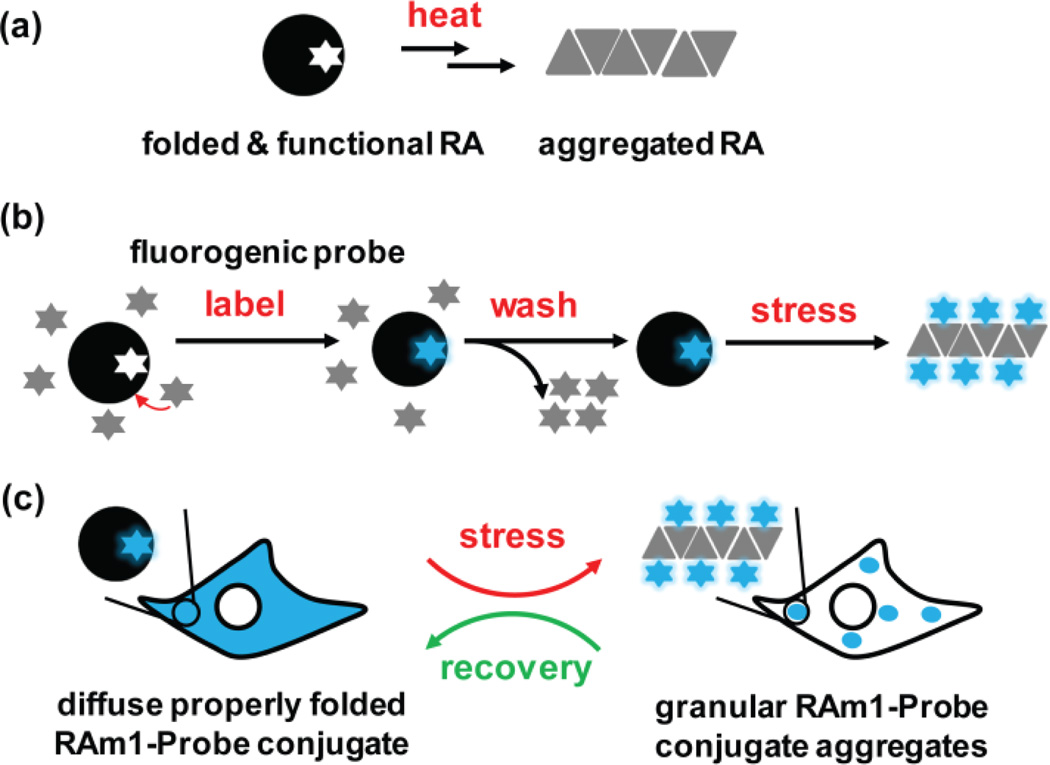Figure 1.
A cellular metastable client protein acts as a proteostasis network capacity sensor. (a) Under physiological conditions, a thermo-labile de novo designed retroaldolase (RA) will be largely folded and functional in the absence of stress, but upon heating, will form aggregates that consume proteostasis network capacity. (b) Folded and functional RA is labeled by a fluorogenic small molecule probe, rendering the covalent conjugate fluorescent. Conjugate fluorescence is retained upon aggregation due to the covalent modification and the chromophore utilized. (c) Preformed RAm1-P1 conjugate can undergo misfolding and aggregation into an aggregated granular state upon application of a heat stress, serving as a sensor of cellular proteostasis network capacity.

